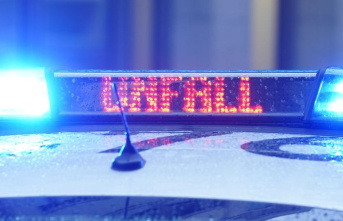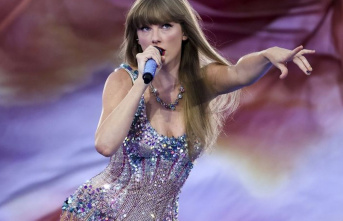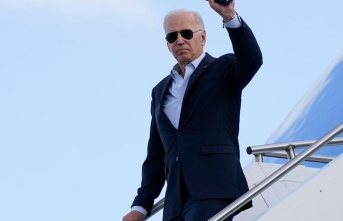Twitter is experiencing severe turbulence two weeks after being taken over by tech billionaire Elon Musk. Musk did not rule out bankruptcy of the online service when he appeared in front of employees. The assignment of verification ticks to subscription customers without checking had triggered chaos with fake accounts that looked deceptively real. The US consumer protection agency FTC then sent Twitter an unusually sharp warning. Other top managers in key positions left the company.
Musk warned employees that Twitter's balance sheet could face a billion-dollar hole in the coming year. If, under these circumstances, it is not possible to bring in more money than is spent, "insolvency cannot be ruled out," Musk quoted the financial service Bloomberg as well as the tech media "The Information" and "Platformer". His recent $4 billion sale of shares in electric car maker Tesla was needed to save Twitter.
The tech billionaire and Tesla CEO bought Twitter for $44 billion. The service was already in the red before the takeover. After the deal, Musk lamented a slump in sales because some major advertisers suspended ads on the platform. They worry that if Musk relaxes the content rules, as announced, their ads could appear alongside offensive tweets.
The loan of around $ 13 billion that Musk took out for the purchase also weighs on Twitter. According to media reports, servicing this debt costs around one billion dollars a year. The tech billionaire wants to supplement the advertising revenue, which has so far accounted for 90 percent of revenue, with a subscription business. The launch of his new subscription with a verification tick initially caused chaos because some users impersonated celebrities and companies with fake accounts.
New subscription regulations led to numerous fake accounts
On Wednesday, Twitter implemented the reorganization of the allocation of verification ticks announced by Musk. So far, they have been granted by Twitter to celebrities, politicians and companies after an examination. Under the new system, anyone who pays $8 a month on a subscription gets the tick. There is no identity check. The tick looks the same in both cases. You can only find out from the text after clicking on the symbol whether you are dealing with an earlier, actually verified account or with a newly purchased tick.
Some users created deceptively real-looking fake accounts with the new function - for basketball star LeBron James, the games company Nintendo and ex-US President Donald Trump. The pharmaceutical company Eli Lilly apologized to Twitter users who were led to believe by a fake account that insulin would be distributed free of charge in the future.
On Friday night, an additional gray checkmark with the word "Official" next to it appeared in the previously verified profiles. Musk halted the launch of the symbol in the middle of the week.
As a countermeasure, Musk announced on Friday night that accounts that wanted to impersonate others would have to use the word “parody” directly in their names. The problem with the fake accounts wasn't that there weren't any rules against it, but that they couldn't be discovered and deleted quickly enough - while they had verification ticks.
"We are following the recent developments on Twitter with great concern," said an FTC spokesman. No company or its boss is above the law.
Following previous violations at the FTC, Twitter had undertaken, among other things, to subject new functions to a data protection and security test before they were introduced. According to media reports, Musk assured employees in an email after the FTC warning that Twitter would do everything possible to comply with the agreement with the agency. The FTC can impose heavy penalties. According to their investigations, Facebook paid five billion dollars in 2019.
Musk is cracking down on new rules
Musk also warned employees of difficult times in an email. The economic situation is "bad", especially for a company that depends on advertising revenue. In the memo, Musk also announced new guidelines for working from home - in future, working from home will only be permitted with his express personal permission. According to the memo, which the US media unanimously quoted from, employees must be in the office at least 40 hours a week. Before the takeover, Twitter's employees were allowed to work from anywhere. Musk is considered an outspoken opponent of the home office trend, which he had already made clear at his electric car company Tesla.
Last week, Musk cut about every second of the approximately 7,500 jobs on Twitter. According to the reports, he now said that the company still had too many employees in some cases.
On Thursday, other key executives left the company: Yoel Roth, who was responsible for filtering out objectionable content, and Lea Kissner, head of information security. According to media reports, Robin Wheeler, who was recently responsible for relations with advertisers, submitted her resignation but was persuaded by Musk to stay. She tweeted that she was still at it.












